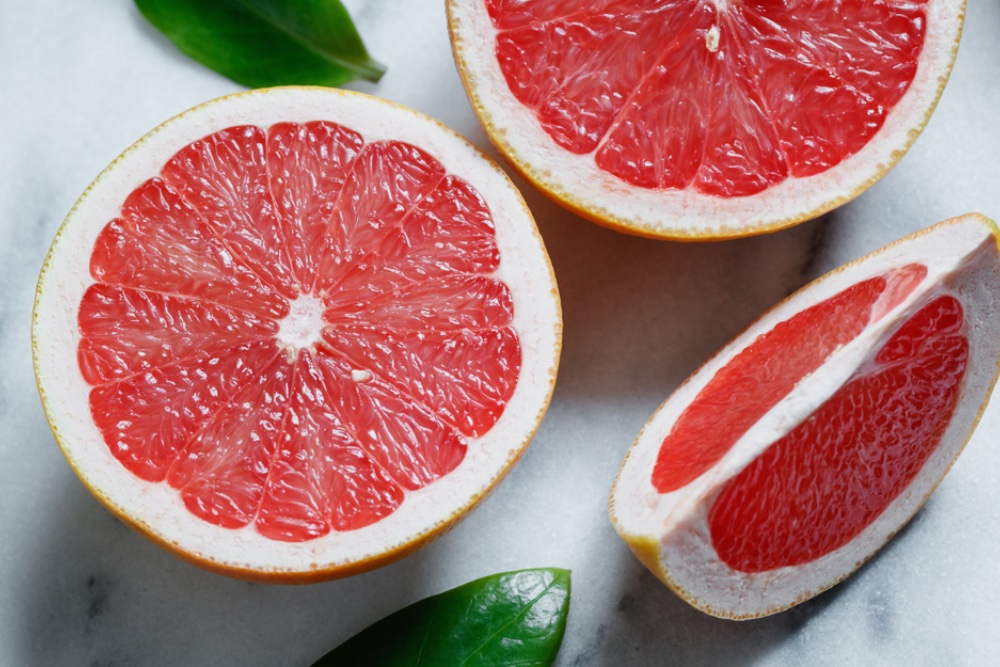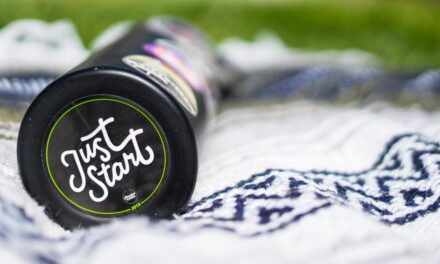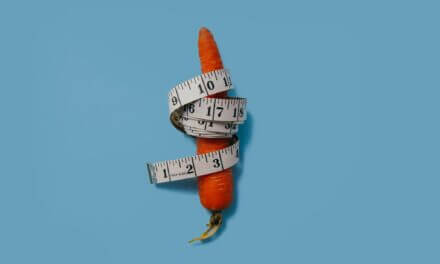How to Prepare for a Fast

Because the idea of fasting is so simple – don’t eat! – many of us think that we can rush into a fast without preparing for it. While it’s technically accurate that you could fast the day after winning a hotdog-eating contest and binge drinking, the reality is that your fasting results will largely depend on how much effort you put into being prepared.
And that’s exactly what we’re going to help you with.
We’ve talked a bit about how to prepare for a fast in several of our articles. (Don’t eat tons of greasy food, cut out alcohol, etc.) But since ‘fasting preparation’ is the star of the show today, we’re excited to take a deep dive into many little-known facts and nuances about preparing for a fast that will help you fly through your next 24 hours without food!
These tips will help you feel less stressed while burning more fat and having tons of energy throughout your next fast.
Since there are many types of fasts you can prepare for, we’re going to simplify things and talk about making for 24-hour fasts specifically. But these tips and guidelines can be applied to prolonged and intermittent fasts, too.
We’ll cover the following topics:
-
how long you should prepare for a fast
-
what kinds of foods you should and shouldn’t be eating – plus how much to eat
-
the importance of pre-fasting hydration
-
biohacks to prepare your body for fasting
-
scheduling a fast
And real quick before we get started…
Consulting your doctor is one of the most critical aspects of how to prepare for a fast. A physician or healthcare provider will be able to run rests that determine if you’re ready for a fast, what supplements you might need before a fast, or if you fall under a category of people for whom fasting might not be the best idea.
How many days should you prepare for a fast?
Depending on your lifestyle and how long your fast is, one to three days should be spent in preparation. The day before your fast is the most critical day, though, because the foods you eat then will have the most influence on your metabolism, blood glucose, and inflammation levels during your fast.
So we’ll be focusing on the one day before your fast in this article.
What type of foods (and how much) should you eat?
The factors that most affect your fast are inflammation, stress, blood glucose, and metabolism. And guess what? Your diet impacts all of these factors. So the food choices we recommend before your fast are anti-inflammatory, easy on the digestive tract, low glycemic index, and they rev up your metabolism – all of which will help you breeze through your fast!
Choose foods similar to these the day before your fast:
- Broth-based vegetable soups and stews
- wild-caught, low-mercury fish (mackerel, sardines, cod, salmon)
- healthy fats like olives, almond butter, pasture-raised eggs, avocados, grass-fed butter, coconut oil, olive oil, and MCTs
- green leafy vegetables such as spinach, chard, and romaine lettuce
- fruits including blueberries, strawberries, raspberries, blackberries, apples, and cherries
- vegetable such as squash, zucchini, sweet potatoes and broccoli
- stevia and other natural, zero-calorie sweeteners
- small quantities of pasture-raised meats and dairy
- small amounts of fresh-squeezed juices
- and small quantities of whole grains, such as brown rice and oatmeal.
(Whenever possible, be sure to purchase organic foods so that your liver and kidneys aren’t working overtime during your fast to process pesticides and other harmful chemicals. This is very stressful to the body and will make a fast harder than it has to be.)
A sample day could involve a couple of over-easy eggs and a small bowl of yogurt topped with blueberries for breakfast, soup and a salad for lunch, and salmon with steamed spinach over a small bed of brown rice for dinner. (Many people find that they fast much more comfortably when they heavily salt their foods on their preparation day.)
Just as important as the foods you eat are the foods you don’t. The following foods could cause inflammation, stress, and blood sugar swings while slowing down your metabolism:
- Fried foods
- processed foods such as chips, cookies, cakes, and packaged meals
- industrial vegetable oils including soybean oil, corn oil, peanut oil, canola oil, and cottonseed oil
- grains such as wheat and corn
- raw goitrogenic vegetables including kale, broccoli, cabbage, and bok choy
- store-bought juices including orange juice, grape juice, and apple juice
- high-glycemic fruits including melons, pineapple, dates, and mangos
- nightshades such as tomatoes, potatoes, and eggplants
- conventional dairy including low-fat milk, yogurt, and cheese
As a general rule, if you’re going to eat plenty of carbs, do it with enough protein and fat so that your blood sugar doesn’t rise too rapidly. The more stable you can keep your blood sugar and insulin levels the day before your fast, the less stress and hunger you’ll have on your fasting day.
To keep your insulin levels as stable as possible, avoid snacking and frequent meals. (Insulin rises every time you eat food.) This might mean that you have to eat larger meals than you think. But as long as those meals made up of clean foods, and you’re not going to bed hungry, you’re good!
How important is hydration as you prepare for your fast?
In a word: very. Adequate hydration is vital for flushing out toxins, lubricating cells, and converting fat into energy while you fast. This helps reduce inflammation and cellular stress while boosting metabolism – several of the key factors in a successful fast.
Many people focus on drinking enough water during a fast, but few ever do so when they prepare for a fast. By focusing on taking in more water and eating more water-containing fruits and veggies the day before your fast, though, you’ll take advantage of all the electrolytes from food that will add structure to the water and make it more usable by the body.
Here are some helpful hydration tips the day before your fast:
- drink 2-4 glasses more than you usually would
- add a pinch of sea salt to your water
- add sliced fruits (like strawberries and lemons) and stevia to your drinking water – this will make the water easier to drink and easier to absorb
- eat more foods with high water content: fruits and veggies, smoothies, etc.
- keep away from diuretics such as alcohol and coffee
- take a multi-vitamin with potassium, magnesium, zinc, and other electrolytes
Are there any pre-fast biohacks?
Sleep
The biggest pre-fast biohack is sleep, hands down. It reduces stress, increases your willpower, and even curbs hunger. Research shows that a slight sleep shortage can make you insatiably hungry.
The reason that hunger spikes after you lose sleep is that the hunger hormone ghrelin rises as satiety hormones fall. You could do everything right in preparing for your fast – starting with shorter fasts, eating the right foods; but if you don’t get enough sleep, you’ll always feel like pressing the ‘reset’ button on your fasts by reaching for the closest, crunchiest snack available!
So before your fast, even if you think you function better than most on low sleep, always allow for 7-8 hours rest. Set a sleep alarm so that you’re in bed and ready to sleep at the right time. Make sure to limit blue-light and heavy exercise in the hours before bed. And avoid adult beverages, as alcohol is a known sleep disruptor.
Fish oil
Fish oil such as EPA and DHA are known anti-inflammatories that promote fat burning. Make sure to take several pills in the day before your fast. Don’t have any? Enjoying a nice Alaskan salmon dinner would work just as well.
MCT oil
Medium Chain Triglycerides (MCTs) are a special kind of fat that bypass normal digestion and are converted into energy by the liver. MCTs increase ketone production, so they’re often used before fasts to prime the body for fat burning.
You should make sure to take a tablespoon of MCTs in your last meal before your fast. This will help you wake up with a fat-burning metabolism.
Sunlight
Studies show that when your body senses bright light, especially sunlight, genes for mitochondrial efficiency are upregulated, which leads to more fat burning. Try to get sun exposure (especially in the morning) in the days before your fast!
Heat exposure
You might ordinarily think of heat exposure as a stressful activity – sort of the opposite of what you’d want to do to prepare for a fast. But research shows that heat exposure such as sauna use is a hormetic stressor, like fasting, which means that it protects against future stress. For this reason, it’s smart to take a sauna in the days before a fast so that you can better tolerate the physical and psychological stresses. (Just make sure to rehydrate!)
If you can’t access a sauna, cold exposure is also a known hormetic stressor that can be just as effective at reducing stress during a fast.
Scheduling a fast
When thinking about how to prepare for a fast, many beginners forget to adjust their schedules and build in more periods of rest and relaxation. Especially for first-timers, fasting can significantly impact your productivity and energy! (Hopefully not half as much if you’ve followed the other steps.)
Stress of any form can raise your blood sugar and knock you out of fat-burning mode during your fast. So if you’re rushed all day or feel like you have more work than your fasting self can handle, you’ll have a good chance of feeling miserable – even if you’ve eaten all the right foods and hydrated perfectly the day before.
At some time during the day before your fast, make sure to reevaluate your schedule and calendar. Schedule two thirty-minute breaks where you can lie down or meditate. Try to reschedule any task that looks like it may be too stressful. And shift your hardest tasks for the morning, when you’ll have the most energy to concentrate.
If you have tons of energy because you followed all the other fasting preparation tips, keep powering through the day. But if you don’t feel so hot, you’ll look back at the end of your successful fast and be glad that you had that extra time to rest.
Putting it all together
Fasts are just like anything else in life: if you put enough effort into preparing for them, you’ll get fantastic results. If not, then you might be forced to break your fast before you’ve gotten any results.
You can prepare for your next fast of 24 hours or longer by eating clean, hydrating, getting enough sleep/trying out a few biohacks, and by adjusting your schedule all in the day before you fast.
Do you have to do all of these at once? Not at all. (That actually could add to your fasting stress!) But it’s a good idea to start off with the healthy eating and hydrating aspects and add more preparation to your pre-fast routine as you gain more experience.
Happy fasting!





